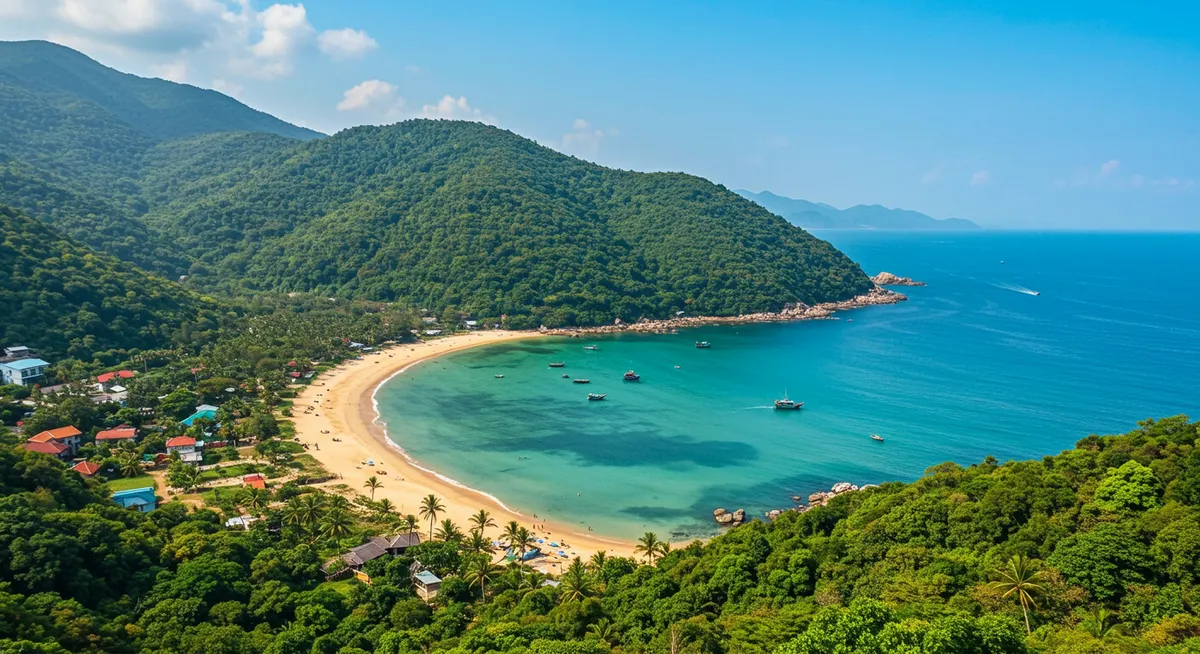
Best Time to Explore Danang Nature in 2025
Table of Contents
Want to find the best nature experiences for this destination? Chat with our nature tourism specialist!
Get Nature TipsCategory: best-time-to-explore-danang-nature-2025
Your Guide to Danang's Natural Beauty: Ideal Seasons
Having explored Vietnam extensively, I've found Danang's natural landscapes truly captivating, offering a diverse range of experiences from lush mountains to pristine coastlines. Knowing the best time to explore Danang nature is crucial for maximizing your adventure. This guide will help you pinpoint the perfect seasons to witness the city's stunning natural beauty, ensuring a memorable trip whether you're climbing ancient peaks or driving scenic coastal roads. Let's dive into the optimal periods for your 2025 journey.
Spring (February - April): The Peak Season for Nature Lovers
For many seasoned travelers, myself included, spring is arguably the best time to explore Danang nature. The weather is consistently dry and mild, with comfortable temperatures hovering around 25-30°C. This period is perfect for outdoor activities without the oppressive humidity of summer or the persistent rains of winter. Imagine trekking through the captivating Marble Mountains, exploring their caves and pagodas with ease. Likewise, venturing onto the Son Tra Peninsula or enjoying the panoramic views from the Hai Van Pass becomes a truly delightful experience. The clear skies offer excellent visibility, making it ideal for photography and soaking in every scenic vista. I always recommend this window for first-time visitors keen on soaking up Danang’s natural allure.
Summer (May - August): Sun-Kissed Adventures and Coastal Bliss
Summer in Danang, from May to August, is characterized by higher temperatures and increased humidity, often reaching 35°C. While it can be quite hot, this is an excellent season if your primary goal is beach relaxation and water sports. The ocean is calm and inviting, perfect for swimming or snorkeling. If you plan to delve into other natural sites like the Son Tra Peninsula or the Marble Mountains, scheduling your visits for early mornings or late afternoons is advisable to avoid the midday heat. Although occasional afternoon showers can occur, they are typically brief and refreshing. Don't let the heat deter you; simply adjust your exploration times to truly appreciate Danang's nature.
Autumn (September - November): Tranquil Charm and Lush Landscapes
As Danang transitions into autumn, from September to November, the weather becomes a bit more unpredictable, marking the beginning of the rainy season. However, this period often brings fewer crowds and a lush, vibrant landscape, offering a unique opportunity to explore Danang's nature in a different light. Temperatures become milder, typically ranging from 20-28°C. While rain showers are more frequent, they don't usually last all day. This can be a fantastic time for a scenic drive along the Hai Van Pass, where mist can create dramatic, ethereal views. My personal tip: always carry a light rain jacket and embrace the verdant beauty that the rain brings to the region, enhancing the natural experience.
Winter (December - January): Cooler Breezes and Unique Perspectives
Winter in Danang, spanning from December to January, is the coolest and often wettest period. Temperatures drop to around 18-24°C, and persistent light rain or drizzle is common, especially in December. While not the traditional 'best time' for extensive outdoor exploration, it offers a distinct charm. The cooler weather is pleasant for those who prefer escaping the heat, and major natural attractions, such as the Danang nature attractions, are significantly less crowded. This season can provide a more serene and contemplative experience of the landscapes. If you're planning to explore Danang’s natural beauty during these months, packing waterproof gear is essential, allowing you to comfortably enjoy the misty mountain views and tranquil coastal areas. Ensure you check local forecasts for 2025!
Frequently Asked Questions
What's the driest month to visit Danang for nature?
Is it too hot to explore Danang's natural sites in July?
Are there typhoons in Danang? When do they usually occur?
Choosing the ideal time to explore Danang nature truly depends on your preferences, but spring (February to April) consistently offers the best conditions for a well-rounded outdoor adventure. However, each season brings its own unique charm, from the sun-drenched beaches of summer to the tranquil, lush landscapes of autumn and the cooler, less crowded winter. Regardless of when you visit, Danang’s natural beauty is undeniable and awaits your discovery. For more detailed insights into specific sites, remember to consult our comprehensive guides on Tourist Nature. Plan your trip now to experience the unparalleled beauty of Danang in 2025!